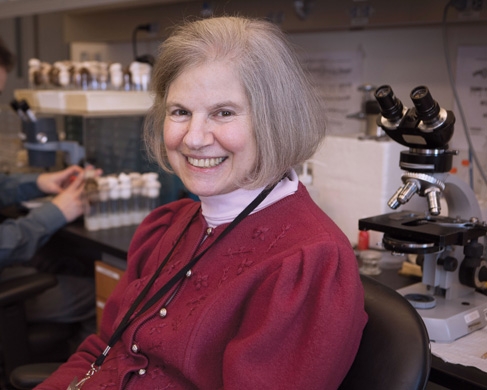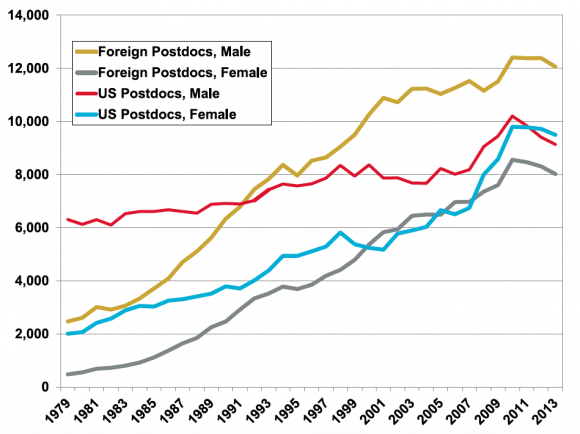PROVIDENCE, R.I. [Brown University] — There were only three years between 1979 and 2010 in which the number of postdocs in biology and medicine at U.S. universities failed to rise from the prior year. But data since 2010 show the number dropped each of the next three years, falling by a total of 5.5 percent to 38,719 by 2013.
In a new paper in The FASEB Journal a trio of researchers including Susan Gerbi, George D. Eggleston Professor of Biochemistry and professor of biology, examine the sudden decline of the life sciences postdoc. Drawing on data from the National Science Foundation and other sources, they find that fewer people earning doctorates seek postdoctoral positions in academia and those who hold them are leaving them sooner.
What has made the job less attractive? The reasons appear to be economic. NIH grants, adjusted for inflation, have been declining sine 2003. Unemployment among holders of advanced life sciences degrees has increased (though it still remains much lower than for the general population). Academic faculty jobs are also not increasing as fast as the number of Ph.D. graduates.
The latest year of declines has been the greatest, suggesting an acceleration in the trend.

"Postdocs are a major driving force for the engine that fuels biology research"
Image: Scott Kingsley
In the article, Gerbi and her co-authors don’t fault postdocs for their well-supported reading of the marketplace:
“From the perspective of the newly minted Ph.D. students, eschewing a postdoc reflects a rational response to a tight academic labor market with low compensation and uncertain prospects for success,” they wrote. “Moving into other employment settings without pursuing a postdoctoral position may be the right decision for many recent Ph.D. graduates.”
But Gerbi said the decline is a serious concern for society because without postdocs, many promising new opportunities for discovery may go unfulfilled.
“Biological research requires many hands at the lab bench to do the experiments,” she said. “Since postdocs are a major driving force for the engine that fuels biology research, it is alarming that the number of postdocs has been decreasing in the past few years. This raises the question: ‘Who will do the research?’
“This and other issues suggest it may be time to consider novel ways to structure the biological research enterprise as otherwise it runs the risk of stagnating for want of hands at the bench,” she said.
Gerbi’s co-authors are Howard Garrison of the Federation of American Socieities for Experimental Biology and Louis Justement of the University of Alabama–Birmingham.

